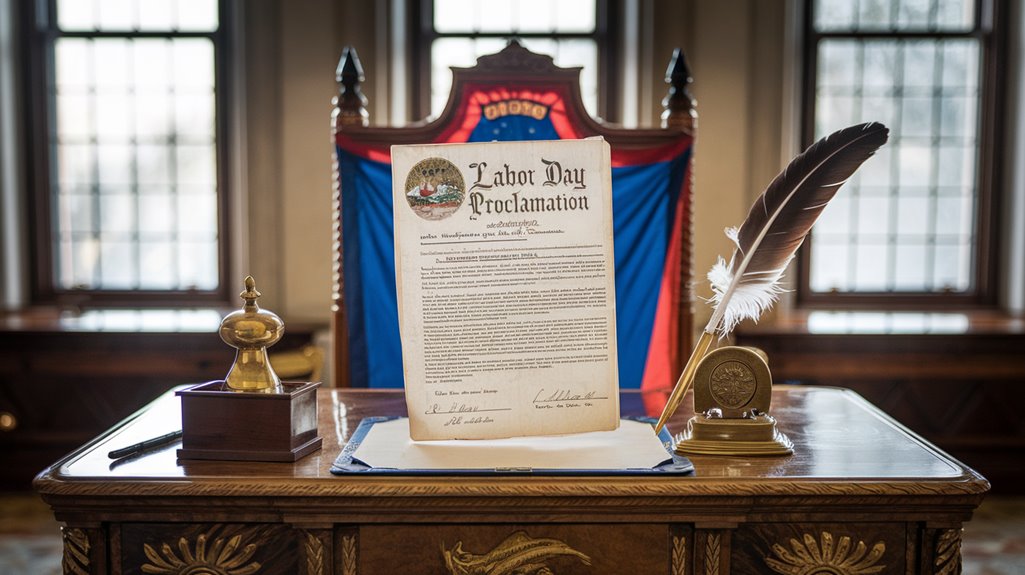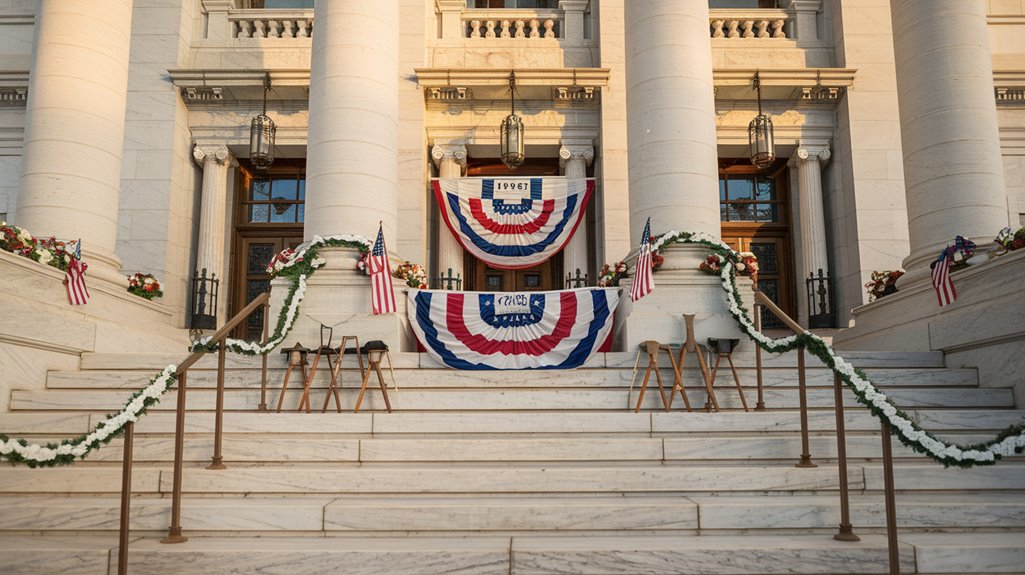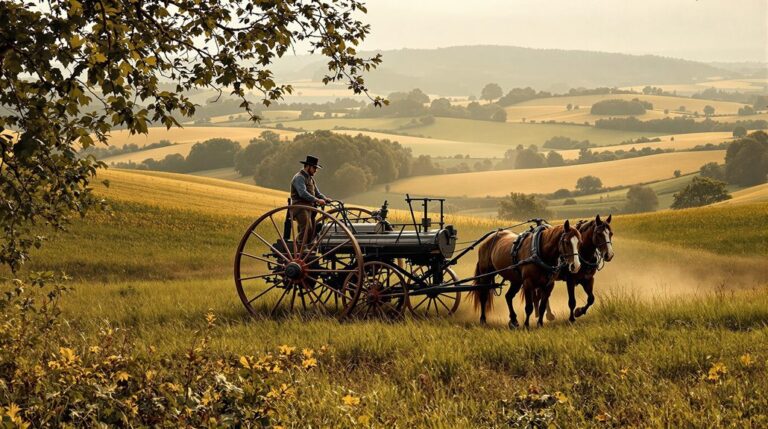Oregon Pioneered Labor Day as an Official State Holiday
You might find it coincidental that Oregon, a state known today for its rugged wilderness, would be the first to formally recognize workers' rights through Labor Day. In 1887, you'd have witnessed a pivotal moment when Governor Sylvester Pennoyer signed this groundbreaking legislation, establishing the holiday on June's first Saturday. While you're probably familiar with today's September celebration, the story of how this shift occurred reveals surprising twists in America's labor movement.
Oregon's Historic First Step in Labor Day Recognition
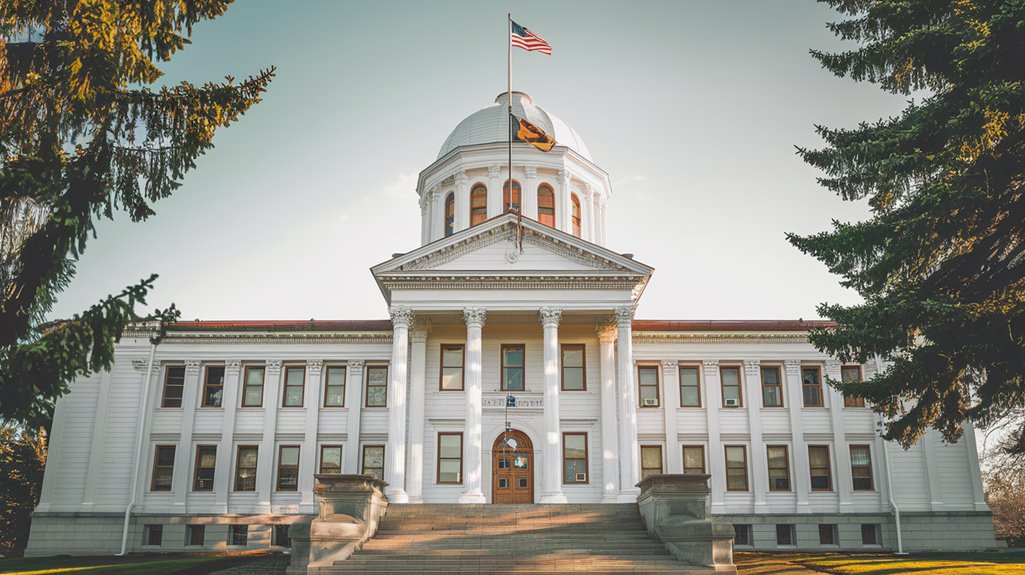
Oregon made history as the first state to officially recognize Labor Day when Governor Sylvester Pennoyer signed groundbreaking legislation on February 21, 1887.
While New York City had celebrated Labor Day since 1882, Oregon's influence paved the way for nationwide recognition of workers' rights and contributions.
You might be surprised to learn that Oregon initially observed Labor Day on the first Saturday in June, different from today's September celebration.
The holiday's establishment wasn't without controversy – The Oregonian newspaper voiced concerns about its necessity and potential disruption to business.
Labor rights awareness grew significantly during this period of labor movements across the nation.
Despite this skepticism, other states quickly followed Oregon's lead, with Colorado, Massachusetts, New Jersey, and New York adopting their own Labor Day legislation later that same year.
By 1890, twenty-three states adopted Labor Day as an official holiday.
This pioneering move ultimately contributed to Labor Day becoming a federal holiday in 1894.
The Ripple Effect: How Other States Followed Oregon's Lead
After Oregon's groundbreaking Labor Day legislation, the movement spread rapidly across America's industrial states.
You'll find that Colorado, Massachusetts, New Jersey, and New York quickly followed Oregon's example in 1887, recognizing the importance of honoring workers with an official holiday.
Peter J. McGuire is widely credited as the father of this important American holiday.
The State Adoption of Labor Day gained impressive momentum:
- By 1890, 23 additional states had embraced the holiday
- Within seven years, 30 states were officially celebrating Labor Day
- Congress passed federal recognition in 1894
- Canada adopted the same September date, showing international influence
This swift expansion demonstrates how Oregon's initiative sparked a nationwide movement.
The federal government's recognition in 1894 sealed Labor Day's status, ultimately leading to its celebration across all U.S. states, territories, and the District of Columbia.
The Journey From State Law to Federal Holiday
The path to establishing Labor Day as a federal holiday began with pioneering state legislation. After Oregon's groundbreaking move in 1887, you'd see a wave of states following suit, with Colorado, Massachusetts, New Jersey, and New York quickly adopting their own Labor Day laws. Oregon initially celebrated Labor Day on the first Saturday in June.
By 1890, twenty-three more states had joined the movement.
Federal recognition came in 1894, driven by dramatic events including the Pullman Strike led by Eugene V. Debs. The resulting riots, which claimed 37 lives and left 57 injured, prompted Congress to act.
They chose September instead of May Day to avoid socialist associations, making Labor Day an official federal holiday in the District of Columbia and territories.
Key Figures Behind Oregon's Labor Day Movement
Labor pioneers shaped Oregon's path to becoming the first state to recognize Labor Day, though many of their names have been lost to history.
While national labor leaders like Peter J. McGuire and Matthew Maguire advocated for the holiday nationwide, Oregon's union contributions came from collective efforts rather than individual champions.
Key influences on Oregon's labor landscape included:
- Lt. Col. Bryce Disque's government intervention that mandated better working conditions in logging camps
- Victor Stevens' testimony about the IWW's impact on improving loggers' living conditions
- The Loyal Legion of Loggers and Lumbermen's establishment, which addressed industry-specific labor issues
- The Industrial Workers of the World's activism, despite facing legal challenges
These collective efforts, rather than individual labor leaders, helped establish Oregon's groundbreaking Labor Day legislation and improved working conditions throughout the state.
Oregon's Labor Movement and Its Lasting Impact
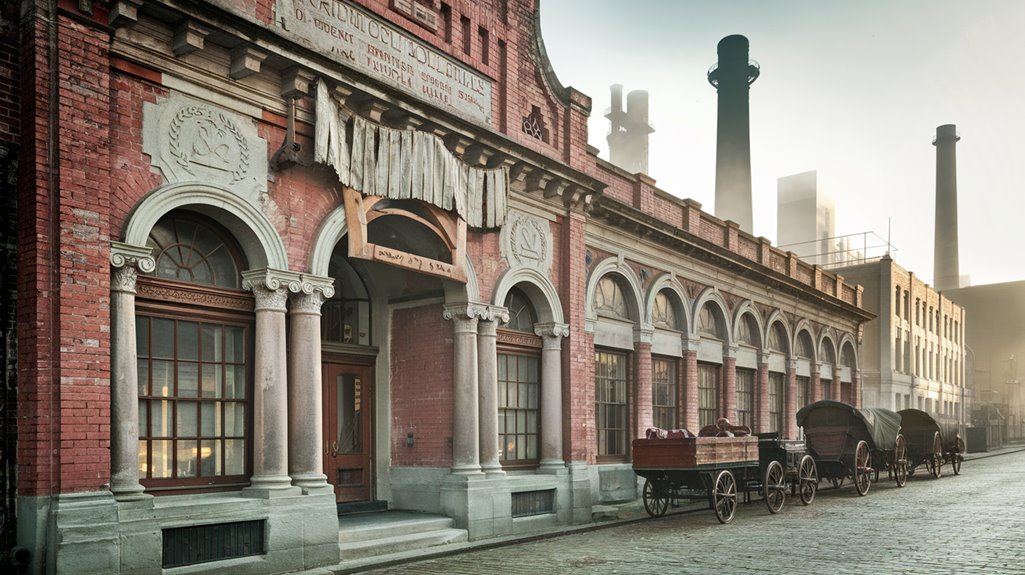
Since its early days of militant strikes and grassroots organizing, Oregon's labor movement has evolved into a powerful force for workers' rights and social change.
The Industrial Workers of the World emerged as a key organizing force in 1917, rallying discontented workers to push for better conditions. From the Northwest loggers' fight for better conditions to today's successful union drives, you'll see a consistent thread of determined labor activism throughout Oregon's history.
The impact of this movement extends beyond the workplace. You can witness its influence in Portland's recent political landscape, where labor-friendly candidates dominated the city council elections in 2024. A unified labor PAC formed in fall 2024 helped coordinate resources and strategy across multiple races.
The movement's success stems from strong union leadership and innovative approaches like small donor matching programs.
Today's victories at companies like Weyerhaeuser and Hillsboro Hospital, coupled with record-high public approval for unions, show how Oregon's early labor struggles have paved the way for continued progress in workers' rights.
The Significance of Oregon's Labor Day Legacy Today
Modern-day Oregonians inherit a powerful legacy as citizens of the first state to officially recognize Labor Day.
 $5.9 billion losses from the destructive Labor Day wildfires in 2020.
$5.9 billion losses from the destructive Labor Day wildfires in 2020.
You'll find this legacy reflected in:
- Ongoing efforts to prevent labor trafficking through industry-specific training
- Demonstrated resilience in recovering from the devastating 2020 Labor Day wildfires
- Strong community engagement in workers' rights education and advocacy
- Leadership in developing worker protection policies and standards
When you celebrate Labor Day each September, you're not just marking a holiday—you're honoring Oregon's enduring role in championing fair labor practices and workplace dignity for all Americans.

